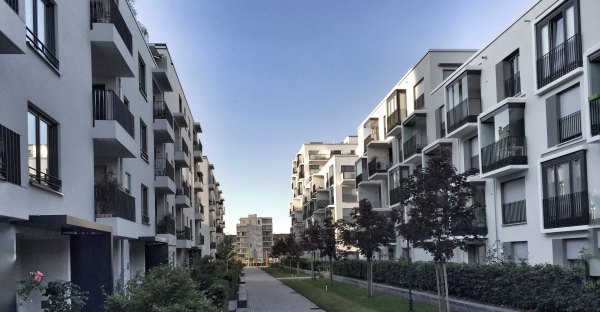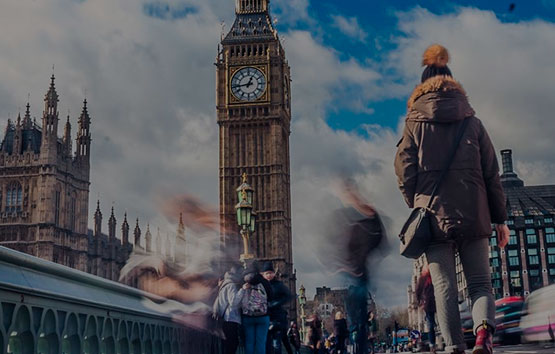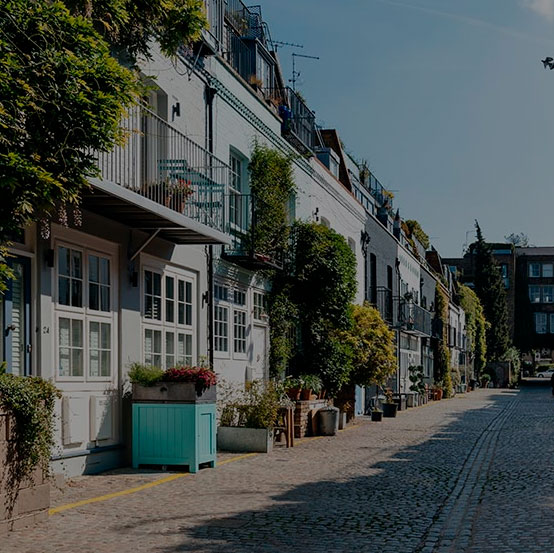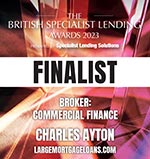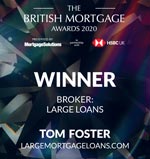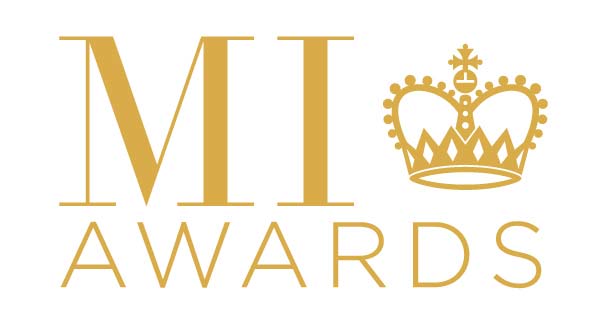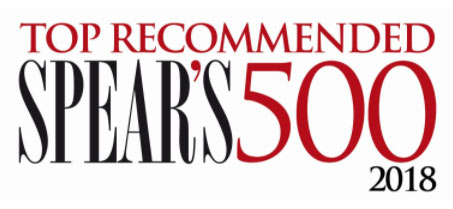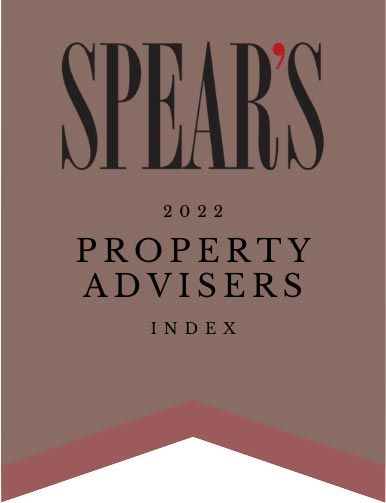The UK mortgage market is open to property investors of any nationality. In recent years, opportunities for the Middle Eastern demographic in the UK mortgage market have been boosted. This falls in line with an increase in Middle Eastern dollar-dominated investors, as London property becomes even more attractive.
A foreign national is defined as someone who is not a naturalised citizen of the UK, whether they live in the country or overseas1. For anyone in this group applying for a mortgage in the UK, the application process will differ somewhat to that of a citizen already living in the UK.
We look at some of the questions you may have as a foreign national from the Middle East who is looking to arrange a mortgage in the UK.
Can a foreign national get a mortgage in the UK?
The answer is: Yes. It has recently become somewhat easier to do so as the number of mortgage lenders with the appetite to lend to foreign nationals, residing in or outside of the UK, are rising. However, your mortgage success will depend on your individual circumstances.
Lenders are moving into the foreign national mortgage market, notably for nationals of the Gulf Cooperation Council (GCC). This includes Saudi Arabia, UAE, Qatar, Bahrain, Oman and Kuwait. It is, therefore, possible for some non-EEA foreign nationals to gain funding for the purchase or remortgage of a UK property.
How does a mortgage work in the UK?
The mortgage application process for non-EU nationals in the UK is slightly more complicated than the application for EU-nationals.
Before you can secure a mortgage in the UK, you will be subject to a number of checks. This includes checks on your income, identity, credit status, employment status, residency status and the location of the property you would like to purchase.
However, due to the highly competitive nature of the UK mortgage market currently, there is finance available and lenders with a range of different terms and rates willing to lend to Foreign Nationals.
What documentation do you need to supply to secure a mortgage?
Each lender will ask for slightly different documentation. The information they request will also vary on your circumstances and the type of mortgage you are applying for. However, you will most likely be asked for the following as a minimum:
- Copies of your personal identification documents, e.g. passport or ID card
- Proof of legal residence in the UK
- Documents demonstrating your creditworthiness, e.g. a credit check, bank statements, proof of your wages, your P60 benefits statement or a letter from your employer
- Proof that you meet mortgage affordability and can make the monthly mortgage repayments, e.g. household cash flow statements, utility bills or bank statements
Once you have provided all the relevant documentation, the lender will assess them to ensure that you meet their affordability criteria and decide how much they are willing to lend you.
After your mortgage application has been agreed in principle by the lender, you will also be asked for the documentation relevant to the survey and the valuation of the property. The lender will look at this to ensure that the property has been valued fairly.
What fees will I have to pay?
Arranging a mortgage in the UK will mean that foreign nationals must pay fees to lenders and solicitors, including legal costs and administrative fees. The exact costs will vary depending on your circumstances. In addition, you will also have to consider stamp duty. The amount you will have to pay is based on the value of your property.
Stamp duty rates
| Property value | Normal rate* | Additional property * |
| Less than £125k | 0% | 3% *** |
| £125k to £250k | 2% | 5% |
| £250k to £925k | 5% | 8% |
| £925k to £1.5m | 10% | 13% |
| Rest over £1.5m | 12% | 15% |
| * Standard rate of stamp duty on a residential purchase for anyone who has owned property in the UK or overseas previously2
**higher stamp duty rates for additional properties from April 2016. |
||
Stamp duty for first-time Buyers
As of the 22 November 2017, first-time buyers who have never owned freehold or leasehold interest in a property, in any country before, will be subject to a lower rate of stamp duty. For those purchasing their first and only main residence, the rates below will apply:
| Purchase price | Stamp duty charged on the proportion of price in band |
| Up to and including £300,000 | 0% |
| £300,000-£500,000 | 5% |
| Above £500,000 | SDLT is paid at standard rates on the whole price |
(Source: HM Treasury: Autumn Budget 2017 – Stamp Duty Land Tax relief for first-time buyers3)
In the UK, when arranging a mortgage, you can also expect to pay the following fees:
- Lender fees
- Property valuation fees
- Legal fees
- Broker fees
Will UK lenders want to know about the source of funds?
Again the answer is, yes. You will be asked by UK lenders to provide detailed evidence on the source of funds for your mortgage application. This will entail providing documentation on where the finance for the mortgage deposit is coming from. You will also be asked to provide detail on the income used to make the mortgage repayments, if you are arranging a capital repayment mortgage or the interest payments, should you choose to put in place an interest-only mortgage.
As you are a foreign national from the Middle East, all UK lenders will perform these due diligence checks before they accept your application. It is, therefore, essential to make sure that you have all the necessary paperwork in order. This is something that a specialist mortgage broker will be able to help you with.
How will your income be assessed as a foreign national?
As a foreign national from the Middle East, your income may well be in a currency other than Pound Sterling. If so, this means that you will be servicing your UK mortgage in a foreign currency, and the income assessment carried out by the lender may take more time than a regular mortgage. You can read more on this topic in our foreign currency mortgage article here.
It is also vital to consider your employment status. If your income is easy to prove, then the application process is likely to be more straightforward and raise the chances of your application being accepted. Being employed by a multinational organisation, for example, is something that lenders are likely to take a positive view on. For more information on the application process look here.
How much can I borrow as a foreign national?
The amount you can borrow as a foreign national will depend upon the size of deposit you have available, income assessment and/or rental calculations (if looking at Buy to Let property), the mortgage interest rate, and mortgage term.
It is important to remember as a foreign national from the Middle East living in the UK or overseas, and earning income in a foreign currency, that your pool of potential lenders will increase if you are looking to borrow above £500,000.
If you need a large mortgage, £1 million or above, then keep in mind that you will most likely need a higher deposit, and the lender may take all your assets into account, especially if they would like to build a long-term banking relationship with you.
What if I have no traceable income?
If you have no traceable income in the UK or through the organisation you work for outside of the UK, getting a mortgage will be more of a challenge, as it will be harder to prove that you meet the lender’s lending criteria.
There are, however, some ways that you can mitigate against this. The lender may ask you instead to have:
- been a resident in the UK for more than 3 years
- a permanent job in the UK
- permanent residence rights in the UK, or a UK work permit
- UK bank account and a traceable credit history
- access to 25% deposit on the value of the purchase price via your own savings
This will, of course, depend on your individual circumstances, so it is essential to seek professional advice from a specialist mortgage broker who will be able to advise you further.
Do I need specialist mortgage advice?
As a Middle Eastern foreign national, the range of UK mortgage lenders willing to take a view on your application may at first seem limited. This is where a specialist mortgage broker with unlimited access to the market can help. They have access to a range of niche lenders and Private Banks with flexible lending terms and underwriting criteria, along with a wealth of expertise dealing with clients with complex borrowing requirements.
A mortgage broker will take a holistic view on your finances, and present your case to an appropriate lender on your behalf. This can save you a lot of time and increase the chances of your application being accepted and, if necessary, a bespoke solution may be arranged. Therefore, it is advisable to seek specialist advice before taking further steps to secure a mortgage in the UK if you are a foreign national from the Middle East or elsewhere in the world.
Your home may be repossessed if you do not keep up repayments on your mortgage
Changes in the exchange rate may increase the sterling equivalent of your debt
- https://en.oxforddictionaries.com/definition/foreign_national
- https://www.gov.uk/government/uploads/system/uploads/attachment_data/file/661436/Stamp_duty_land_tax_relief_for_first-time_buyers.pdf
- https://www.gov.uk/government/uploads/system/uploads/attachment_data/file/661436/Stamp_duty_land_tax_relief_for_first-time_buyers.pdf
